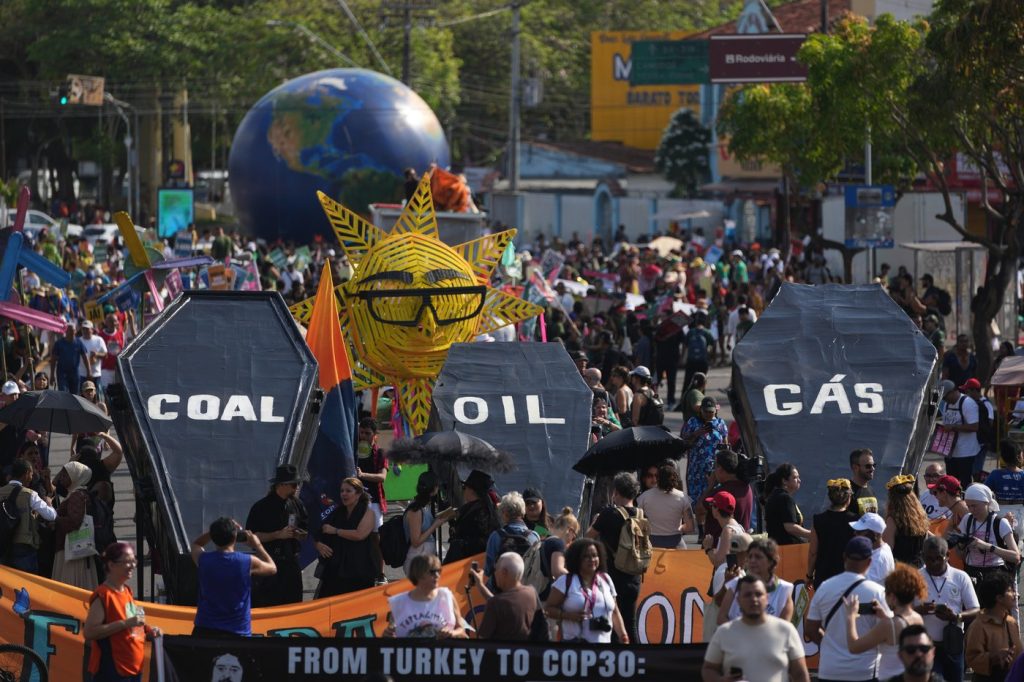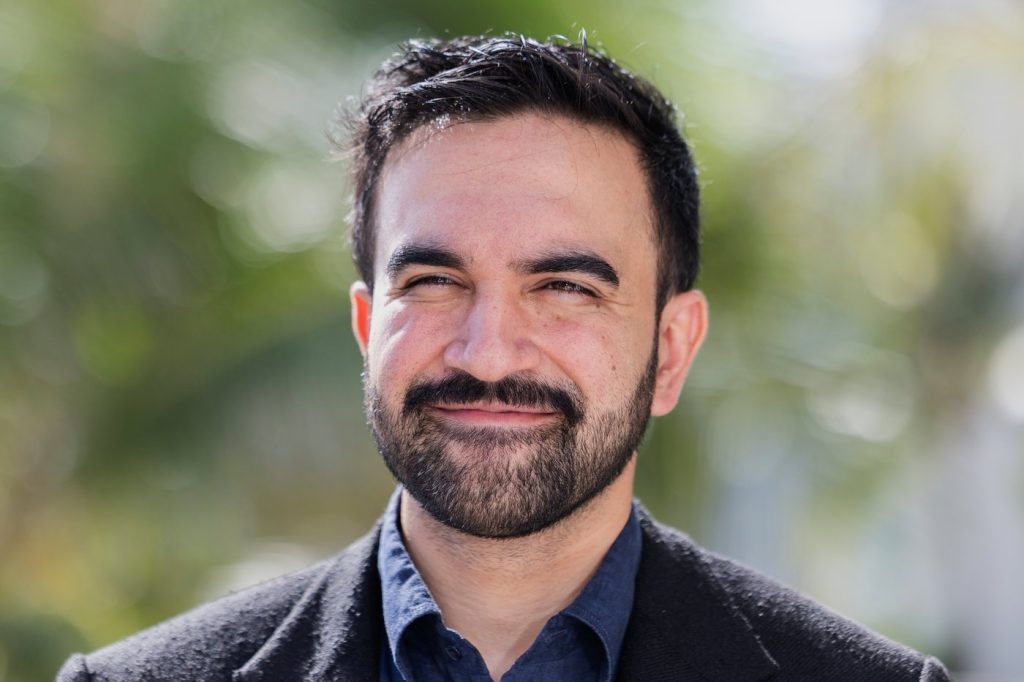In Belem, Brazil, an extensive climate protest took place on Saturday, marking a significant moment in the ongoing United Nations climate talks, known as COP30. Demonstrators showcased their commitment to environmental protection through various forms of expression. Some wore black dresses as a stark symbol of mourning for fossil fuels, while hundreds donned red shirts to represent the blood of colleagues fighting against environmental degradation. The event traditionally stands as the most prominent day of protest midway through the annual climate discussions.
Protesters, guided by organizers using booming sound systems atop trucks, covered a distance of approximately 4 kilometers (about 2.5 miles), marching close to the main venue of COP30. Marisol Garcia, a Kichwa woman from Peru, emphasized the need for world leaders to make more compassionate and human-centered decisions regarding environmental policies. Earlier in the week, protesters had twice disrupted the climate talks, including a significant incident on Tuesday that resulted in minor injuries to two security guards.
The day was filled with planned sessions at the main venue, including discussions on how to advance the previously agreed annual climate financial aid of $300 billion, aimed at supporting developing countries in transitioning away from fossil fuels, adapting to climate impacts, and compensating for damages related to extreme weather. Despite the serious discussions inside, many outside felt empowered to protest more freely compared to climate conferences held in more restrictive nations like Azerbaijan, the United Arab Emirates, and Egypt, where dissent is often stifled.
Younger activists joined in large numbers, with 27-year-old youth leader Ana Heloisa Alves noting that this was the largest climate march she had ever participated in. Her group focused on defending the Tapajos River, which the Brazilian government plans to commercially develop. Signs during the march declared, "The river is for the people." Pablo Neri, a coordinator for the Movimento dos Trabajadores Rurais Sem Terra in Para, called for increased public involvement in the talks, advocating for a climate movement that allows for broader participation.
Interestingly, the United States chose to skip COP30, a notable absence given the previous administration's controversial stance on climate change, where former President Donald Trump referred to it as a hoax and withdrew from the Paris Agreement, a landmark international treaty aimed at limiting global warming. In a creative critique of the U.S. position, demonstrator Flavio Pinto donned a brown suit and an exaggerated American flag top hat while performing on stilts and fanning himself with faux hundred-dollar bills featuring Trump's likeness, with a sign reading, "Imperialism produces wars and environmental crises."
Representatives from diverse communities took to the streets, including women from the Interstate Movement of Coconut Breakers of Babaçu, led by regional coordinator Vitoria Balbina. Clad in domed hats made from Babaçu palm fronds, they sought better access to trees that are crucial for their livelihoods and cultural heritage. Balbina articulated that the march was not solely about resistance; it was about preserving a way of life entwined with their environmental struggles.
The vibrant march, dominated by a display of red, white, and green flags, drew the attention of onlookers, with many gathering outside shops to capture images of the procession. The climate talks are scheduled to continue through Friday, though analysts have cast doubt on the likelihood of any groundbreaking new agreements being reached. Instead, there is hope for progress on previous commitments, particularly concerning funding for impoverished nations to adapt to the consequences of climate change.












